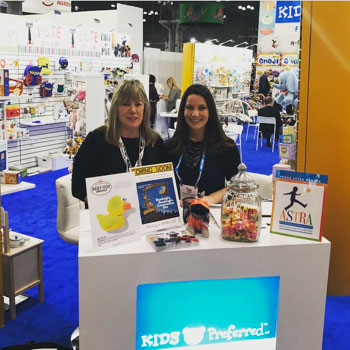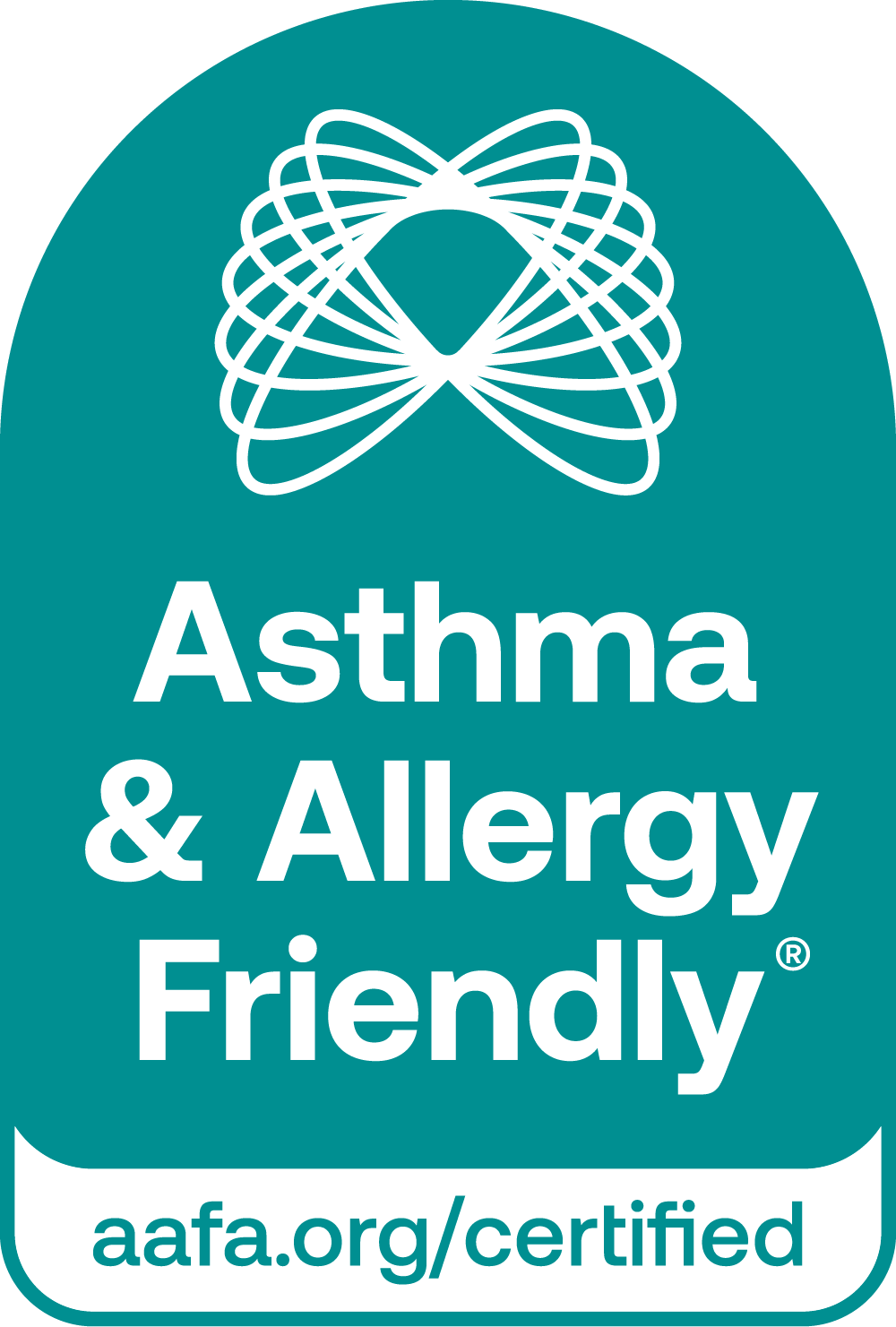February 21, 2017
New York, NY
 The Toy Fair, produced by the Toy Industry Association, is the premier trade event whose members account for 90% of the annual U.S. domestic toy market of $26B. The asthma & allergy friendly® Certification Program attended this year to meet with existing clients and answer questions about how toy companies can obtain this certification for certain categories of toys.
The Toy Fair, produced by the Toy Industry Association, is the premier trade event whose members account for 90% of the annual U.S. domestic toy market of $26B. The asthma & allergy friendly® Certification Program attended this year to meet with existing clients and answer questions about how toy companies can obtain this certification for certain categories of toys.
Many toy companies displayed toys that are made from organic ingredients, “green,” recycled, or otherwise good for the environment, but there is little to no regulation in the industry to support these claims. Additionally, toymakers are often not required to submit their products for any type of scientific laboratory testing to be able to make these claims on their packaging.
As parents become increasingly concerned about home health, and asthma attacks have risen to become the number one cause of children staying home from school, more companies should be thinking of how they can validate their claims of health and safety with toy labeling.
 Kids Preferred, a toy company with a wide range of certified asthma & allergy friendly® plush toys, exhibited at the Toy Fair this year. In this photo, Laura Perks from Kids Preferred (left) stands beside Courtney Sunna (right) from the asthma & allergy friendly® certification program
Kids Preferred, a toy company with a wide range of certified asthma & allergy friendly® plush toys, exhibited at the Toy Fair this year. In this photo, Laura Perks from Kids Preferred (left) stands beside Courtney Sunna (right) from the asthma & allergy friendly® certification program
Plush toys continue to be the hottest certification category for children’s toys, but what does it mean for a toy to be certified asthma & allergy friendly® by the Asthma and Allergy Foundation of America (AAFA)?
Criteria for asthma & allergy friendly® Certification of Stuffed Toys
- Toys must comply with national safety legislation for style and age range in the countries where they are sold.
- Washing in a domestic washing machine must achieve >90% reduction in the level of house dust mite allergen, when measureable, from the surface of the toy.
- Washing instructions are established based upon the frequency of washing required to maintain surface allergen levels below 2µg/m2.
- Before and after the recommended repeated domestic washing procedures, toys must meet or exceed the most stringent applicable international legal restrictions / directive standards for quality and safety.
- Fabrics and stuffing must meet or exceed the most stringent applicable international legal restrictions / directive standards for allergenic and irritant chemicals including, but not limited to, formaldehyde, VOCs, and specified dyestuffs.
How are stuffed toys tested in the laboratory?
There are four main standards for testing which are carried out when testing a stuffed toy to be certified. These include: Allergen Testing, Chemical Testing, Physical Testing, and Fabric Testing.
Part 1: Allergen Testing
The stuffed toy is artificially seeded with dust mite allergen, left to incubate for four weeks, and then washed. After washing, a >90% reduction in allergen load must be determined.
Part 2: Chemical Testing
The toy is tested for the presence of multiple chemical groups and then compared to a relevant and internationally accepted standard in that category. The chemical groups tested for stuffed toys include Formaldehyde, Banned Azo Dyes, Flame Retardants, Biocidic Finish, Pesticides, Colorants, Dispersed sensitizing dyes, Chlorinated organic carriers, pH value, Migration of monomers, Migration of solvents, and Emission of VOCs.
Part 3: Physical Testing
Toys in this category will be subject to 25 washes and will afterwards be subject to various mechanical and physical performance tests to assess their appearance. We check for flammability and migration of chemicals to ensure that the physical properties themselves do not change after routine washing treatments and the material is strong enough to withstand it.
Part 4: Fabric Testing
During fabric testing, the toy is mainly assessed for colorfastness to rubbing (wet and dry). The laboratory will use a saliva sample to ensure that the color used on the fabric does not become acidic or alkalinize. This is especially important for children’s toys when often end up in a child’s mouth during play. Ensuring that the dyes used in the toy’s fabric will not cause or irritate asthma and allergies is a requirement for this standard.
Can Other Types of Toys be Certified?
Yes, but it would require the development of a new standard for testing. If a company is interested in certifying a non-plush toy, we welcome your enquiry and will provide you information how we can work with you to develop a new standard.
Where Can I Find a List of asthma & allergy friendly® Toys?
- Download the Certified Products app, available in the app store (LINK)
- Visit www.aafa.org/certified and click “Certified Products” – Toys
How Can I Obtain Certification for My Toys?
We would be happy to offer a free consultation to discover more about your business and whether your products might qualify for certification.
To contact us, visit our website at www.aafa.org/certified and navigate to the Apply Now section and simply fill out the form. Our team will be in touch to set up a meeting.
About the asthma & allergy friendly® Certification Program
The asthma & allergy friendly® Certification Program is a unique, ground- breaking collaboration between the Asthma and Allergy Foundation of America (AAFA) and Allergy Standards Limited (ASL). The asthma & allergy friendly® Certification Program tests and certifies products that are scientifically proven to be more appropriate for customers concerned about allergies, asthma, and poor indoor air quality. The program works with retailers and manufacturers across product categories that are relevant to a ‘healthy home’ concept including textiles and apparel, air cleaners, dehumidifiers, paints, bedding, vacuum cleaners, washing machines, stuffed toys, cleaning services, and more. www.aafa.org/certified
About Allergy Standards Limited
Allergy Standards Limited (ASL) is an international certification company that prepares independent standards for testing a wide range of products to determine their suitability for asthmatics and individuals with associated allergies. ASL has devised a series of proprietary testing protocols and suitability specifications for products to meet in order to be eligible for certification as asthma & allergy friendly® . ASL has developed these protocols to identify products that consumers can trust have been subject to rigorous testing to determine their relative suitability for people with asthma and allergies. www.allergystandards.com
